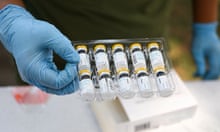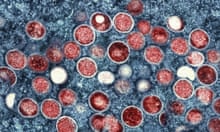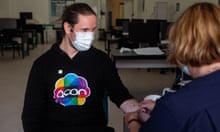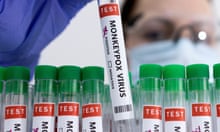Reports that new health secretary, Thérèse Coffey, has rejected her officials’ expert advice to procure an additional 70,000 doses of monkeypox vaccine are deeply concerning and shortsighted.
Less than a month into the role, Coffey is said to have gone against the recommendation of those who have been leading the country’s response, and made a critical decision that leaves the UK vulnerable to future outbreaks of monkeypox.
The UK has now recorded more than 3,500 cases, and in July the World Health Organization declared monkeypox a public health emergency of international concern. And the vast majority of cases are among gay and bisexual men. The infection is primarily being spread among gay men’s sexual networks as a result of close contact during sex.
While the UK has just received a second batch of vaccine, to manage the emergency response to monkeypox and vaccinate those currently at highest risk of exposure, the government needs to have a long-term plan for protecting the population’s health, including adequate vaccine supplies.
These initial doses – while protecting many thousands more than first predicted – are still part of the emergency response to get a grip on the outbreak. They are insufficient to protect against monkeypox in the long-term, and that’s why securing additional doses for 2023 is non-negotiable. Monkeypox is a serious communicable disease that has an effective vaccine available, we should be making it available to people if they want it.
This latest issue unfortunately isn’t an outlier in the UK’s monkeypox response. It has already been a bumpy road so far, with poor communication about vaccine availability resulting in snaking queues of gay and bisexual men waiting for hours outside clinics to be vaccinated, after seeing tip-offs about the locations on Twitter.
There has been a lack of meaningful leadership at the top of government. This can be seen in the woeful support for sexual health services, the displacement of crucial HIV and sexual health testing as clinic capacity is taken up responding to monkeypox, and an initial underestimation of how many would need to be vaccinated.
The UK Health Security Agency has been crystal clear that vaccination is absolutely crucial for controlling the outbreak and preventing monkeypox from becoming endemic. So far more than 40,000 of the 110,000 gay and bisexual men identified as at highest risk have been jabbed.
The UK has enough jabs to vaccinate all of those 110,000, but we will need more to protect those gay men next in line who don’t meet the current risk criteria (which is similar to eligibility for HIV prevention drug PrEP) who are still vulnerable to monkeypox. As well as, of course, to prevent further outbreaks.
In recent weeks we have seen a drop in new cases, which is likely to be as a result of the targeted vaccination programme for gay and bisexual men, as well as changes in sexual behaviour among this group. In addition, the switch to intradermal vaccination (where a smaller volume of vaccine is injected into the upper layer of the skin) means each dose can be used to vaccinate up to five people while still giving the same level of protection. We cannot simply stop here, with many still at risk and the virus still circulating.
It’s unacceptable to say to gay and bisexual men “you’re on your own” once the current vaccine supply is gone. And if future outbreaks impact groups beyond gay and bisexual men currently at highest risk, we simply won’t have the vaccine supply necessary to quickly get on top of it.
That’s why our message to the health secretary is clear: listen to the experts on this and ensure the UK is resilient in the face of future monkeypox outbreaks. We must get in the global queue for more monkeypox vaccine – and fast.
Ceri Smith is head of policy & parliamentary affairs at Terrence Higgins Trust
Comments on this piece are premoderated to ensure discussion remains on topics raised by the writer. Please be aware there may be a short delay in comments appearing on the site.







